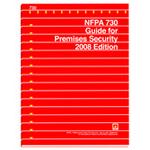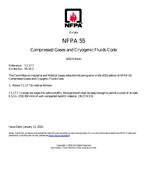Click here to purchase
Apply the revised edition of NFPA 652 to mitigate fire, flash fire, and explosion hazards.
Combustible dust-related fires and explosions are a global problem, and in the United States alone, 50 dust-related incidents occurred between 2008 and 2012. This updated edition of NFPA 652 is essential to manage the dust-related fire, flash fire, and explosion hazards in industries that use dust collection and handling equipment, or that have processes that may generate combustible dust.
Experts in fire and explosion safety for areas with combustible dust worked together to make NFPA 652 an even more effective tool for avoiding these destructive and deadly events.
Major changes in the second edition of the standard include:
- Deadlines were changed for the completion of dust hazard analysis (DHA) for existing processes and facility compartments. The deadline is now September 7, 2020. NFPA 652 also requires that the DHA be reviewed and updated every 5 years.
- Revised general requirements for managing combustible dust fire and explosion hazards.
- New references to the latest editions of NFPA?s appropriate industry- or commodity-specific standards.
NFPA 652 serves the chemical, wood processing, metals, and agricultural industries.
NFPA 652 directs users to NFPA’s appropriate industry- or commodity-specific standards, which include:
- NFPA 61, Prevention of Fires and Dust Explosions in Agricultural and Food Processing Facilities
- NFPA 484, Combustible Metals
- NFPA 654, Prevention of Fire and Dust Explosions from the Manufacturing, Processing, and Handling of Combustible Particulate Solids
- NFPA 664, Prevention of Fires and Explosions in Wood Processing and Woodworking Facilities
Keep all stakeholders on the same page with regard to dusts and their attendant hazards. NFPA 652 presents:
- Definitions
- General Requirements
- Hazard Identification
- Performance-Based Design Option
- Process Hazards Analysis
- Hazard Management: Mitigation and Prevention
NFPA 652 gives installers, contractors, engineers, facility managers, code enforcers, inspectors, and environmental health and safety (EHS) personnel a single go-to source for the information necessary to help handle combustible dust safely in any industry, anywhere around the globe. (Softbound, Approx. 70 pp., 2019)
Product Details
- Published:
- 05/24/2018
- Number of Pages:
- 89


